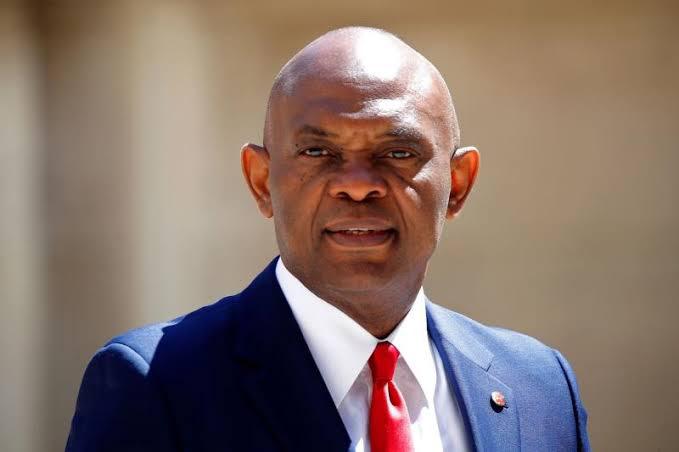
At the heart of Bangui, Central African Republic, a new wave of African ambition echoed through the halls of the African Caucus Meeting of the World Bank and IMF. Among the voices calling for transformation was that of Tony O. Elumelu, the trailblazing entrepreneur, philanthropist, and Chairman of Heirs Holdings, UBA, and Transcorp Group. With characteristic clarity and conviction, Elumelu laid out a bold vision: Africa must take charge of its own story.
Delivering the keynote address at the high-level gathering, Elumelu underscored what many on the continent already feel deeply — that Africa’s progress must be designed and driven by Africansthemselves.
“Africa’s future is our responsibility,” Elumelu told an assembly of leaders, economists, and development partners. “No one will build this continent for us. We must lead.”
His message wasn’t merely one of motivation, but a roadmap built on practical imperatives: close the energy gap, invest in young people, and demand true partnerships rooted in equality and respect.
The Energy Question: Powering Possibility
Central to Elumelu’s vision is the issue of energy access — a defining hurdle to Africa’s economic awakening. With nearly 70% of Africans lacking reliable electricity, he painted a stark picture of the continent’s limitations — and its potential.
“No industrial revolution can happen without electricity,” he warned. “Without power, there is no progress.”
Drawing from experience, Elumelu pointed to his own investments in power and energy through Transcorp and Heirs Energies as evidence that African private capital can fuel transformation. By leveraging natural gas and contributing to the West African Power Pool, his companies are actively demonstrating how the private sector can address public challenges.
Africapitalism in Motion
It’s all part of what Elumelu terms Africapitalism— a philosophy that puts African entrepreneurs and investors at the center of development. It’s a call for the continent’s business leaders to embrace social impact alongside economic returns, and for governments to create environments where innovation and investment can flourish.
“Africapitalism is not a theory,” he asserted. “It’s happening now — in boardrooms, startups, power plants, and communities across Africa.”
However, he emphasized that Africapitalism can’t succeed in isolation. Collaboration with governments, development institutions, and multilateral partners remains essential. But such partnerships, Elumelu insisted, must respect Africa’s context — including recognizing gas as a transitional energy source on the journey to sustainability.
Africa’s Golden Asset: Its Youth
No discussion about Africa’s future, Elumelu noted, is complete without highlighting its greatest resource: its youth.
With more than 60% of Africa’s population under the age of 35, the continent stands on the edge of either a demographic dividend or disaster — depending on how it chooses to empower its young people.
Through the Tony Elumelu Foundation (TEF), over 24,000 young entrepreneurs from all 54 African nations have received seed funding, training, and support — igniting over a million jobs and livelihoods in the process.
“Our youth are not just the future — they are the now,” Elumelu said. “We must equip them with the tools to create, lead, and innovate.”
A Call for True Global Partnership
In an increasingly uncertain global order, Elumelu issued a caution: Africa must stop depending on systems that historically exclude its voice.
“The global community has not always served Africa’s interests. It’s time to stop waiting to be invited to the table. We must build our own.”
Still, he welcomed new signs of engagement, such as the World Bank’s “Mission 300” initiative — an ambitious goal to connect 300 million Africans to power, led by President Ajay Banga — and the IMF’s growing focus on entrepreneurship and inclusive growth.
As the continent confronts complex challenges and immense opportunities, Elumelu’s message rings loud and clear: Africa is ready. The responsibility — and the possibility — lie within.
“Let us seize this moment. Let us build a prosperous, empowered Africa. Not tomorrow — today.



